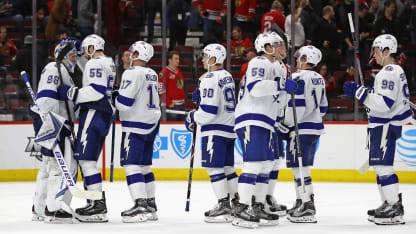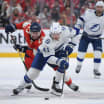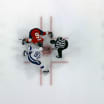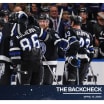Mishkin's Musings:Four Thoughts on the Lightning and the Playoff Race

© Jonathan Daniel/Getty Images
1. It was important that the Lightning ended their season-long three-game losing streak with the back-to-back victories in Chicago and Nashville. Just as significant was how their defensive game is slowly rounding back into form. During their recent struggles, the Lightning's team defense was their biggest issue and, because they were leaky in a variety of areas, there was no easy fix. Rush coverage, d-zone coverage, penalty killing, turnovers, puck management. If it wasn't one thing on one night, it was another. The good news was that the Lightning had not been poor in these categories during the first half of the season. So there was no reason to believe that the Lightning wouldn't be able to correct them.
These types of problems can crop up over the course of a long regular season. The challenge is to fix them sooner rather than later. And that's what the top teams are able to do.
Gradually over the past two games, the Lightning's defensive game has been heading in the right direction. During the first period against Chicago, they surrendered several odd-man rushes and in the second, they committed lots of d-zone turnovers. But their third period was quite solid. Aside from a couple of isolated chances for the Blackhawks, the Lightning played a clean, efficient period. On Wednesday in Nashville, the Lightning had a rough opening 10 and a half minutes. They allowed two goals, 14 shots and numerous chances (mostly off the rush). But after Vladdy Namestnikov tied the game at two, the Lightning's defensive game tightened up. They didn't allow a shot on goal in the final nine and a half minutes of the first period and, for the rest of the game, kept Nashville's dangerous chances to a minimum. Yes, they did allow two power play goals. The first came during Nashville's early-game onslaught. But the second one, in the eyes of the Lightning, should have been overturned due to goalie interference. And the PK did come up with a successful kill in the third period, keeping the deficit at one.
So not surprisingly, the Lightning's defensive turnaround has coincided with two straight wins. There's still room for more improvement. And there's the challenge of not letting things regress. But there's no question that in terms of their team defensive problems, the Lightning have made some successful corrections.
2. Understandably, there was some consternation among Lightning fans when the team dropped three in a row (and allowed 14 goals in the process).But the Lightning's fantastic start was crucial in helping them withstand some of the dips that all teams ensure over the course of a long regular season. To be clear, the Lightning want to win every game. They'd like to finish as high as possible in the standings. And they want to be playing their best hockey down the stretch. But the primary goal during the regular season is a straightforward one: make the playoffs. As Jon Cooper plainly put it earlier this year, you can't compete for the Stanley Cup if you don't make the playoffs. The top three teams in each division automatically qualify for the postseason. As of Wednesday, the Lightning owned a 23-point lead over Detroit and Montreal, the two teams tied for fourth in the division. Most of the other teams in the NHL would love to be in that position.
3. But most of the other teams aren't.The Metropolitan Division is so tight that only six points separate the seven teams behind first-place Washington. Philadelphia, the Lightning's opponent tomorrow, has gone 16-5-1 in its last 22 games. The 33 points gained during that timeframe have moved the Flyers from last place in the division into a second place tie with New Jersey. But the Flyers still only lead the two wildcard teams by a single point. It just reinforces the fact that when you're in a crowded standings race, it's very difficult to gain substantial ground on the teams around you. Assuming both wildcard teams are from that division, it certainly appears as though all eight of the Metropolitan Division clubs are going to duel it out for five available spots. Meaning that three really good teams from the Metro are going to miss the playoffs.
4.As I just mentioned, it will be five spots if both wildcard teams come from the Metropolitan Division.As of Wednesday, all eight Metro teams have more points than the bottom five teams in the Atlantic Division. In other words, the path to the playoffs for any of those five Atlantic teams is a difficult one. Either move into the top three in the Atlantic (and third place Toronto has an 11-point lead on the fourth place teams) or climb into one of the wildcard spots. That latter option would involve not only erasing the substantial points gap, but also climbing over four Metro teams. Plus any other competing Atlantic teams below the playoff cut line. That's a daunting task.


















